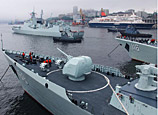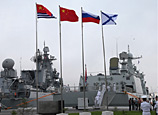
WASHINGTON, July 9 (Xinhua) -- The White House on Tuesday rejected a Russian claim that the Syrian rebels had used chemical weapons in their fighting against the government troops.
"We have yet to see any evidence that backs up the assertion that anybody besides the Syrian government has had the ability to use chemical weapons or has used chemical weapons," White House spokesman Jay Carney said at a regular press briefing.
"I think it's an interesting point that this assertion has been made to or presented to the United Nations because there is the sticking point," he added.
Washington concluded on June 13 that the Syrian government had used chemical weapons, including the nerve agent sarin, against the rebels, resulting in up to 150 deaths, crossing a "red line" set by President Barack Obama in his handling of the Syrian conflict that started in March 2011.
Obama has since authorized the shipment of small arms and ammunition to the Syrian rebels in his administration's stepped-up efforts to support the opposition.
Vitaly Churkin, Russia's ambassador to the UN, said on Tuesday he had handed over evidence to the world body indicating the Syrian rebels used sarin in a March attack.
The envoy told reporters the evidence was collected by Russian experts at the scene of the attack at Khan al-Assal near Aleppo in northern Syria, in which 26 people were killed.
"It was established that on March 19 the rebels launched an unguided Basha'ir-3 projectile towards Khan al-Assal controlled by the government forces," he said. "The results of the analysis clearly indicate that the ordinance used in Khan al-Assal was not industrially manufactured and was filled with sarin."
In March, the Syrian government accused the rebels of firing a rocket with poison gases at Khan al-Assal and killing more than 26 people, while Britain, France and the United States suspected the use of chemical weapons by the Syrian government.
Carney criticized the Syrian government headed by President Bashar al-Assad for continuing to block UN access for an investigation.
"The way to answer this question is to allow the United Nations to investigate, because our ability, as an international community to investigate the use of chemical weapons in Syria, is hampered by al-Assad's refusal to allow a United Nations investigation," he said.
"If Bashar al-Assad is seriously interested in proving his assertion and now the assertion that Russia is making, al-Assad should let the UN investigators in," he added. "And Russia should use its relationship with al-Assad to press al-Assad to allow the United Nations' investigators in."
Britain, France and the U.S. have presented their own evidence to the UN alleging al-Assad's use of chemical weapons in the conflict.
















 Severe rainstorms batter SW China quake-hit regions | Pedestrians fall into river after bridge collapses
Severe rainstorms batter SW China quake-hit regions | Pedestrians fall into river after bridge collapses


![]()
